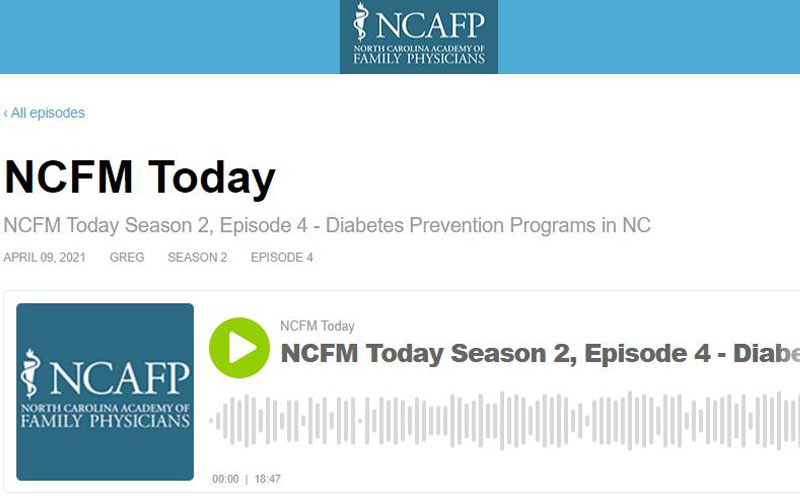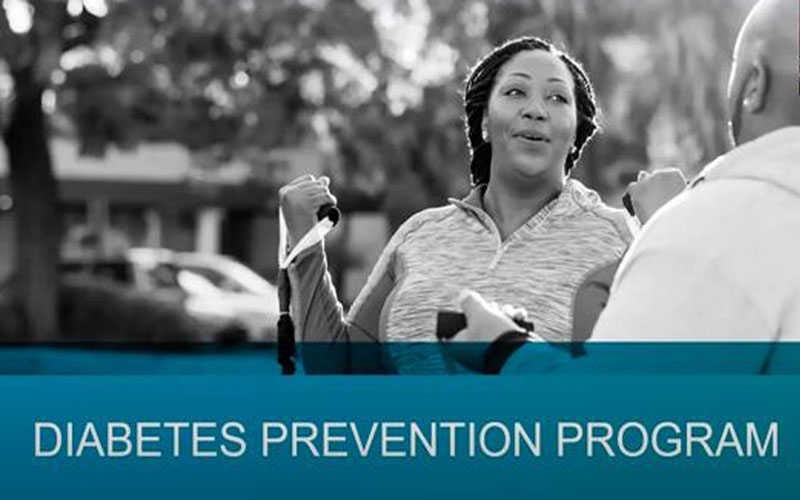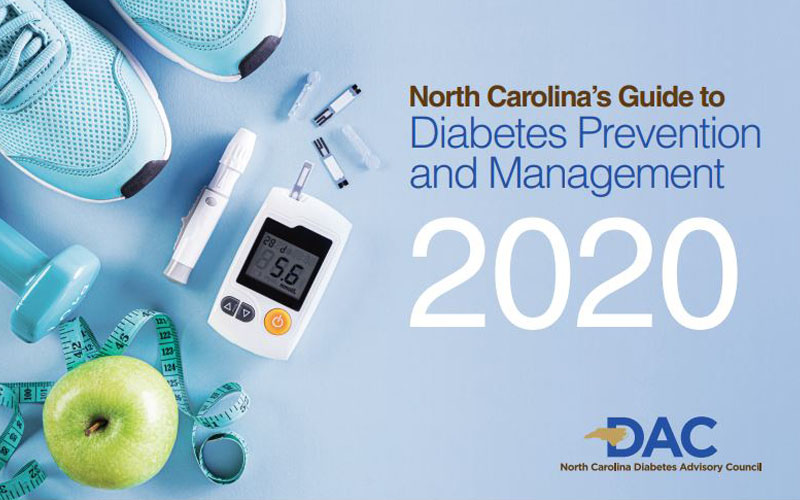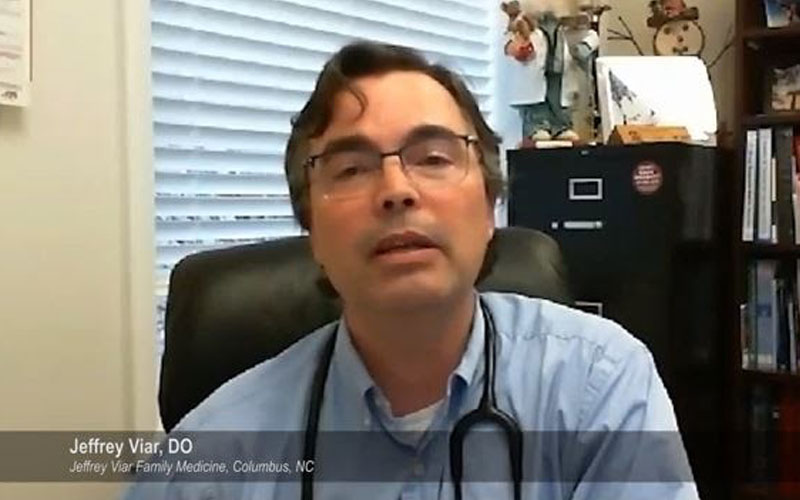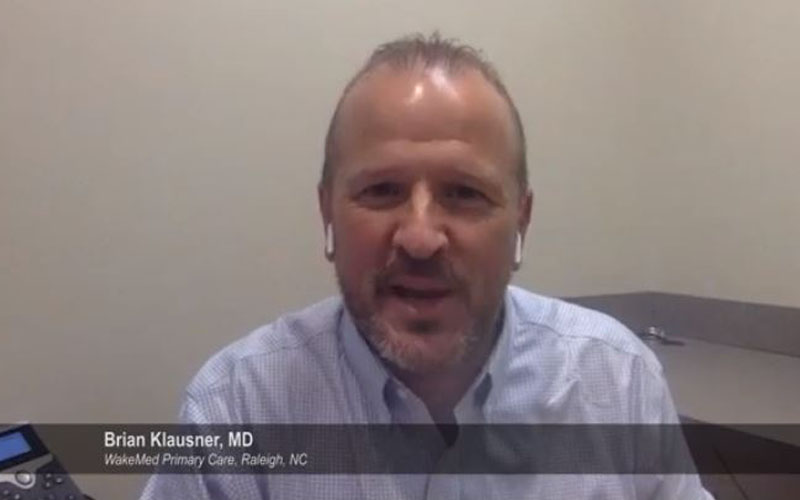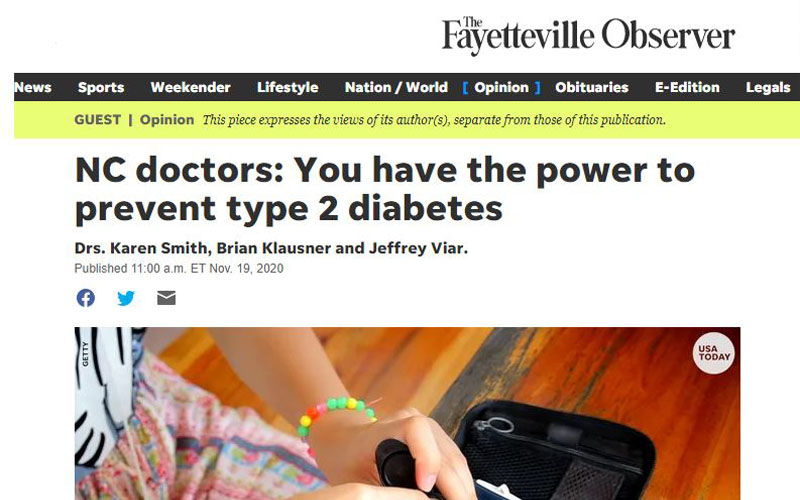Join the movement of clinicians already taking a stand. It’s time for a healthier North Carolina. TAKE THE PLEDGE

1 in 3 adults has prediabetes.
It's time to take a stand.
One goal: DiabetesFreeNC
Through the statewide initiative - DiabetesFreeNC - your patients with prediabetes can attend a National Diabetes Prevention Program (DPP) lifestyle change program with free or low cost options regardless of their insurance provider. This comprehensive program is designed to help your patients make healthy, sustainable lifestyle choices.
Through the statewide initiative - DiabetesFreeNC - your patients with prediabetes can attend a National Diabetes Prevention Program (DPP) lifestyle change program with free or low cost options regardless of their insurance provider. This comprehensive program is designed to help your patients make healthy, sustainable lifestyle choices.
PREVENTING DIABETES STARTS HERE

1.
Identify patients with prediabetes.

2.
Discuss treatment options.

3.
Refer eligible patients to a National DPP lifestyle change program.
Access detailed clinical protocols for
Join the movement
of clinicians
already taking a stand.
It’s time for a healthier North Carolina.
TAKE THE PLEDGE
Stay in the know
Physician Champions
Karen Smith, MD
Karen Smith, MD Diabetes Prevention Program Physician Champion
Brian Klausner, MD
Brian Klausner, MD Diabetes Prevention Program Physician Champion
Bonnie Coyle, MD
Bonnie Coyle, MD Diabetes Prevention Program Physician Champion
Shivajirao Patil, MD
Shivajirao Patil, MD Diabetes Prevention Program Physician Champion
Rivers Woodward, MD
Rivers Woodward, MD Diabetes Prevention Program Physician Champion
Podcast: Diabetes Prevention Programs in NC
Listen to Dr. Karen Smith on the NCFM Today podcast as she discusses how she is increasing awareness of diabetes prevention in North Carolina and her own screening methods to refer eligible patients to a DPP.
Webinar: Diabetes Prevention in Practice
Watch this webinar hosted by the NCMS Foundation and North Carolina Medical Group Management Association as Dr. Karen Smith discusses the criteria and steps to identify patients with prediabetes and intervention options such as referring to a DPP.
North Carolina Guide to Diabetes Prevention and Management 2020
Read about what diabetes looks like in North Carolina and specific strategies to implement toward assisting people in managing their risk for developing diabetes.
“With nearly half of North Carolinians having diabetes or prediabetes, the North Carolina Guide to Diabetes Prevention and Management is a call to action for all of us.”
“As we come out of COVID, it’s more important than ever to work with our patients to empower them to improve their health through diet and exercise.”
“This project has allowed me to refer so many of our patients to work with teams of dietitians and educators, all of those folks who I don’t have here in my office, but they’re working to help prevent diabetes for our patient population.”
AMANews: How the EHR can help ID, refer patients for diabetes prevention
Read how family physicians at Duke Health approached using the EHR to identify and refer patients with prediabetes to a lifestyle change program.
Op-ed: You have the power to prevent type 2 diabetes
Hear from three leading physicians about the importance of diabetes prevention and how North Carolina is leading the charge.
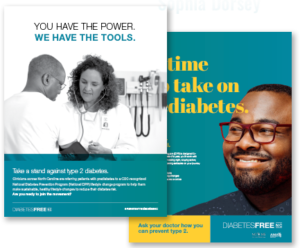
Contact us
If you would like to learn more on how you can help champion efforts to make
North Carolina diabetes free, email:
Franklin Walker, MBA at fwalker@ncmedsoc.org
OR
ReversePrediabetesNC@ama-assn.org
This information is not intended as a substitute for the medical advice of a physician; it offers no diagnoses or prescription. No endorsement is implied or intended by the American Medical Association or the North Carolina Medical Association of any third-party organization, product, drug, or service. Adherence to a lifestyle change program may not achieve desired diabetes results in every situation. The ultimate judgment regarding the appropriateness of any specific therapy must be made by the physician and the patient in light of all the clinical factors. The patient should check with their insurance provider for exact lifestyle change program costs and/or rates.
